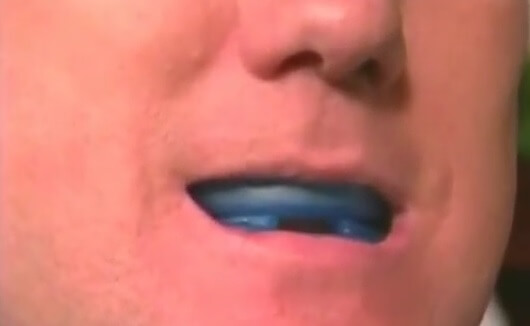Snoring can be a disruptive and frustrating issue for both the snorer and their sleep partner. To alleviate this problem, many individuals turn to snoring mouthpieces, also known as mandibular advancement devices (MADs).
These devices are designed to position the jaw in a way that opens the airway, reducing snoring and promoting better sleep. However, concerns have been raised about the potential impact of these devices on dental health.
In this article, we will explore the pros and cons of snoring mouthpieces and their potential effects on teeth.

Table of Contents
Effectiveness of Snoring Mouthpieces
Snoring mouthpieces have gained popularity due to their effectiveness in reducing snoring for many individuals. By advancing the lower jaw slightly forward, these devices help keep the airway open and prevent soft tissues from collapsing and causing snoring. Studies have shown that snoring mouthpieces can significantly decrease snoring intensity and frequency, leading to improved sleep quality for both the snorer and their partner.
Potential Impact on Teeth Alignment
One concern regarding snoring mouthpieces is their potential impact on teeth alignment. The constant pressure applied to the teeth and jaw by wearing these devices can cause gradual changes in dental positioning over time. While some individuals may not experience any significant changes, others may notice slight shifts or misalignment. It’s important to note that the extent of this impact can vary depending on the individual’s pre-existing dental condition, frequency of use, and the design of the mouthpiece.
Jaw Discomfort and TMJ
Another consideration when using snoring mouthpieces is the potential for jaw discomfort and temporomandibular joint (TMJ) issues. The repositioning of the jaw can cause temporary soreness, jaw stiffness, or even jaw joint problems in some individuals. It is advisable to consult with a dental professional before using a snoring mouthpiece, especially if you have a history of TMJ disorder or jaw-related issues.
Maintenance and Oral Hygiene
Maintaining proper oral hygiene is crucial when using snoring mouthpieces. These devices should be cleaned regularly to prevent bacterial growth and ensure hygienic usage. Most mouthpieces can be easily cleaned using a toothbrush and mild soap or denture cleaner. Additionally, it’s important to inspect the mouthpiece for any signs of wear or damage and replace it as necessary to ensure its effectiveness and oral health benefits.
Consultation with a Dental Professional
Before using a snoring mouthpiece, it is highly recommended to consult with a dental professional. They can assess your dental health, discuss potential risks, and provide personalized advice based on your specific needs and concerns. A dental professional can also recommend alternative solutions or custom-fitted mouthpieces that minimize the impact on teeth alignment and maximize effectiveness.
Conclusion
Snoring mouthpieces can offer significant relief for individuals struggling with snoring issues, leading to better sleep and improved quality of life. However, it’s essential to be aware of the potential impact on dental health. While some individuals may experience minimal effects, others may notice changes in teeth alignment or jaw discomfort. By consulting with a dental professional, maintaining proper oral hygiene, and monitoring any signs of discomfort or misalignment, you can make an informed decision about using a snoring mouthpiece.
Remember, each individual’s dental health is unique, and the impact of snoring mouthpieces can vary significantly. It’s crucial to balance the benefits of reducing snoring with the potential risks to dental health.
If you decide to use a snoring mouthpiece, be proactive in caring for your teeth and gums. Regular dental check-ups and cleanings can help monitor any changes in dental alignment and address any concerns early on. Additionally, following proper oral hygiene practices, such as brushing and flossing regularly, can help maintain good dental health while using the device.
Lastly, consider exploring alternative snoring remedies or consulting with a sleep specialist to explore other options that may be more suitable for your specific situation. There are various treatments available, including lifestyle changes, positional therapy, and continuous positive airway pressure (CPAP) devices, which may provide effective snoring relief without potential dental side effects.
In summary, snoring mouthpieces can be a useful solution for reducing snoring and improving sleep quality. However, it’s important to be aware of the potential impact on teeth alignment, jaw discomfort, and maintenance requirements. Consulting with a dental professional and practicing good oral hygiene can help mitigate any risks and ensure that your dental health remains a priority. By weighing the pros and cons and making an informed decision, you can find the right snoring solution that best fits your needs while safeguarding your dental well-being.